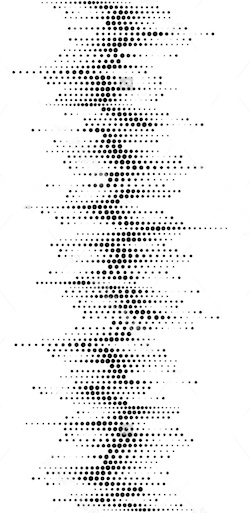Course Info
-
- Day/Time: R 6:00-8:45
- Room: HU 312
- Professor: Byron Hawk
- Email: byron.hawk [at] gmail [dot] com
- Office: HUO 408
- Office hours: T-R 4:15-5:45
Description
-
The course will address the impact of sound studies and new materialist thought on composition and rhetoric. The predominant understanding of rhetoric sees it as a social and symbolic art. While material things are certainly around us and at issue, it is human meaning, symbolicity, and persuasion that traditionally define rhetoric. Importantly, sound studies and the study of sound offer more than ways to interpret the meaning of sounds. They provide ways to investigate how sound attunes bodies, open up questions about sound’s ontological status, and impact how we think about the nature of composition. The class will trace conversations in composition and rhetoric regarding sound over the past decade, examine current texts from sound studies and new materialism in relation to these conversations, work to develop related student projects in the field, both sonic and discursive, and develop initial pedagogical approaches.
Goals
-
The course goals are:
- to introduce students to sound studies as an interdisciplinary movement;
- to trace how the sonic turn has moved into rhetoric and composition over the past ten years;
- to develop a perspective on sound in relation to the students’ own research and objects of study;
- to develop pedagogical strategies for sonic digital compositions.
Texts
-
Multiple PDFs to be distributed via Dropbox. Hardcopy books can be bought via Amazon at the individual student's discretion.
- Sterne, Sound Studies Reader
- Novak and Sakakeeny, Keywords in Sound
- Goodman, Sonic Warfare
- LaBelle, Acoustic Territories
- Voegelin, Sonic Possible Worlds
- Danforth, Stedman, and Faris, eds., Soundwriting Pedagogies
- Coole and Frost, New Materialisms
Attendance
-
Since this is a seminar, it is vital to attend and be prepared to discuss the readings and listen, both to the sound projects we will examine but also to each other. While I won’t formally count discussion and listening as participation, it is crucial to a well functioning seminar and will influence my grading accordingly.
Office Hours
-
I will have office hours on T-R 4:15-5:45. In some cases I may have other meetings during these times, so be sure to send me an email to confirm my availability. Otherwise, we can schedule another time that is convenient for both of us. I check my e-mail several times daily, so this will be the best way to contact me outside of class.
Accommodation
-
In keeping with the University of South Carolina's commitment to non-discrimination--based on age, race, color, sex, religion, national origin, and sexual orientation--and providing program accessibility for qualified students with disabilities, I am happy to provide reasonable accommodation through Student Disability Recourse Center. Students wishing to make such arrangements should contact the SDRC office at 777-6142.

